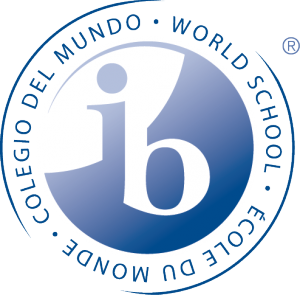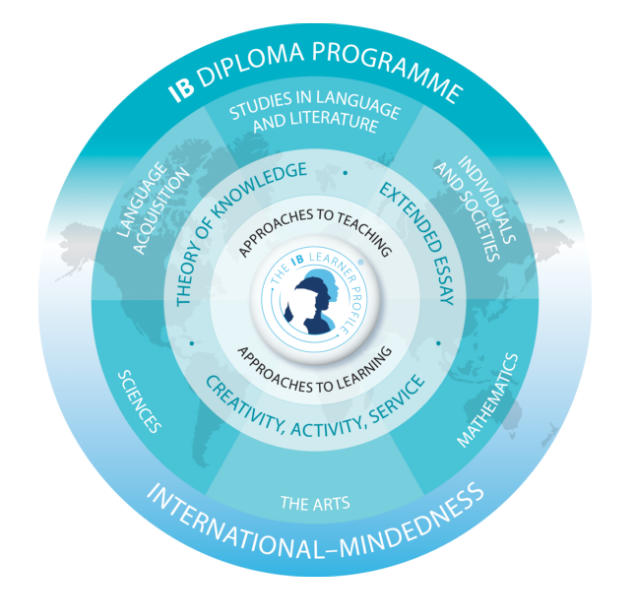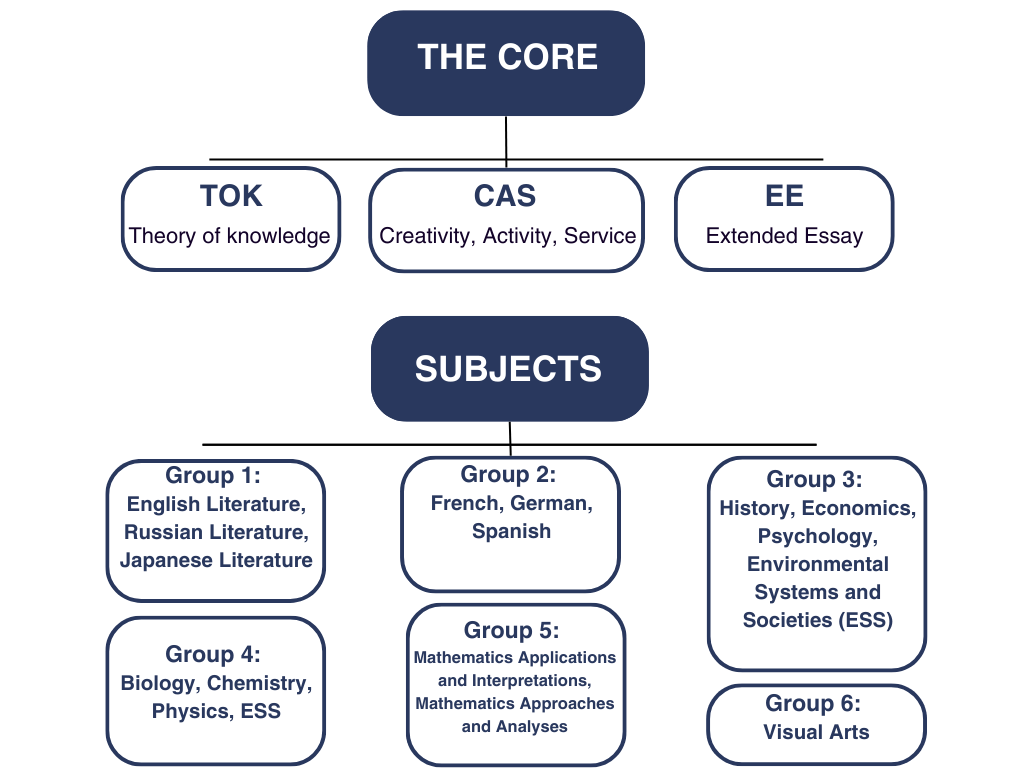- A two-year international education programme with breadth, depth and balance
- For students aged 16–19 years (the last two years of high school)
- Started in 1968 in Geneva, non-profit
- Offered in 150+ countries, by 3400+ schools
- Offers an holistic approach to teaching and learning
- Provides students with everything Universities look for in applicants


Programme structure
Students study six subjects and three core components over two years. 3 of the subjects are chosen at HIGHER level (240 hours) and 3 subjects at STANDARD level (150 hours) .
Core components:
TOK – Theory of Knowledge
EE – Extended Essay
CAS – Creativity / Activity / Service

What is The Core?
Theory of Knowledge (TOK): encourages students to reflect on the nature of
knowledge, the process of learning in all subjects and make connections across the academic areas
Extended Essay (EE): an independent, self-directed piece of writing up to 4,000 words that encourages students to develop independent college-level research skills.
Creativity, Activity, and Service (CAS): students complete projects and activities on a variety of topics and themes linked to the arts, sports, physical and services areas. Students must work on their CAS projects on a weekly basis and for at least 18 months.
Total of 45 points:
- 7 points per subjects
- 3 points from TOK and EE
Points from subjects:
7 – Excellent
6 – Very Good
5 – Good
4 – Satisfactory
3 – Mediocre
2 – Poor
1 – Very Poor
Points from TOK and EE:
| TOK / EE | A | B | C | D |
|---|---|---|---|---|
| A | 3 | 3 | 2 | 2 |
| B | 3 | 2 | 2 | 1 |
| C | 2 | 2 | 1 | 0 |
| D | 2 | 1 | 0 | 0 |
24 total points (out of total 45)
- All subjects graded 2 and higher
- No more than two subjects with grade 2
- No more than three subjects with grade 3
- At least 12 points from HL subjects
- At least 9 points from SL subjects
- Grades D or above for TOK and EE
- Completing CAS programme
Analysis and Approaches (AA)
For students interested in mathematics, engineering, physical sciences, and
some economics.
- Classical approach to mathematics
- Abstract theories
- Proofs
- Emphasis on construction, communicating and justifying correct
mathematical arguments
Applications and Interpretations (AI)
For students interested in social sciences, natural sciences, medicine, statistics,
business, engineering, some economics, psychology, and design.
- Emphasis on practical application
- Designed for the needs of a data-rich world
- Use of mathematics in real-world contexts and solving real-world problems
| Analysis and Approaches (AA) | Hours per Topic | Applications and Interpretations (AI) | ||
|---|---|---|---|---|
| SL | HL | SL | HL | |
| 19 | 39 | Number and Algebra | 16 | 29 |
| 21 | 32 | Functions | 31 | 42 |
| 25 | 51 | Geometry and Trigonometry | 18 | 46 |
| 27 | 33 | Statistics and Probability | 36 | 52 |
| 28 | 55 | Calculus | 19 | 42 |
